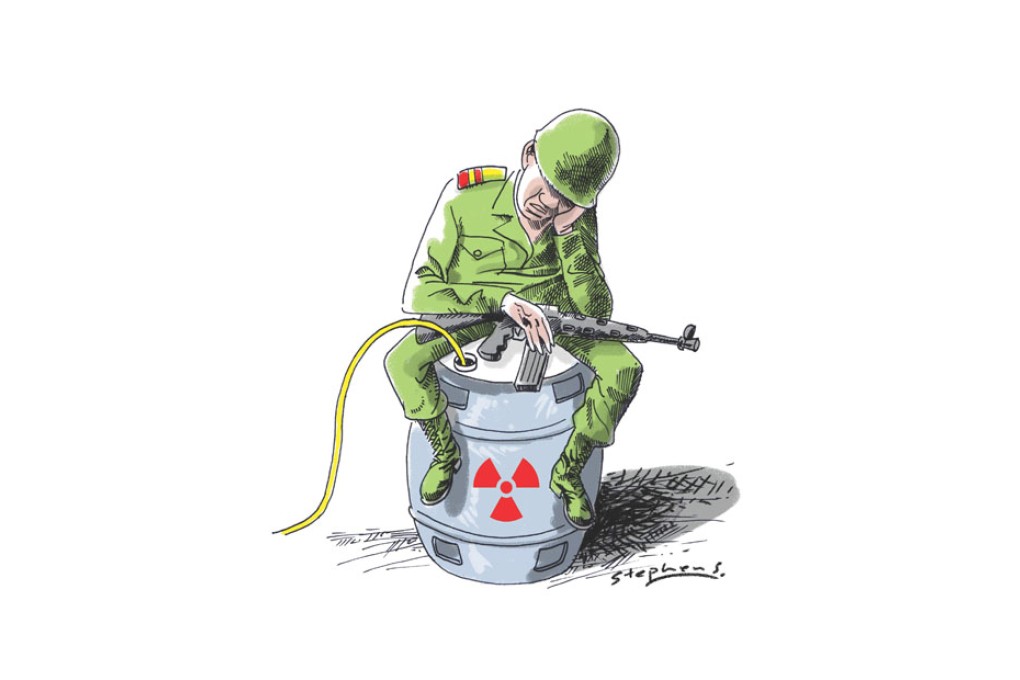China must play its part in preventing nuclear terrorism
Zhou Zunyou says with its large stockpile of highly enriched uranium and growing terrorist threat in Xinjiang, it's vital for China to beef up its nuclear security to meet today's challenges

President Xi Jinping began his first trip to Europe as China's top leader by taking part in the Third Nuclear Security Summit in The Hague last week. The aim of the third world summit, like its two predecessors, was to prevent nuclear terrorism around the globe.
Nuclear terrorism continues to be one of the most challenging threats to international security, something that was agreed upon and reaffirmed at the two previous summits, in Washington and Seoul. Indeed, a single act can destroy a large city, killing hundreds of thousands of people in the process, with political, economic and social repercussions far more devastating than the September 11 terror attacks.
In a 2010 interview, then US secretary of state Hillary Rodham Clinton spoke of world leaders' deep concern: "The biggest nightmare that many of us have is that one of these terrorist member organisations within this syndicate of terror will get their hands on a weapon of mass destruction."
The threat is real, the danger clear and present, given the potential for terrorists to acquire nuclear materials. Such material is, after all, available in hundreds of places around the world. With just 25kg of highly enriched uranium, it would be possible to construct a crude nuclear bomb.
Chinese involvement in the nuclear security summit process is crucial for the world, because the country is a major nuclear power. Such involvement is also vital for China, because the country is currently confronted with an unprecedented threat of terrorism.
That threat comes primarily from so-called East Turkestan forces who seek to change the region of Xinjiang into an independent Islamic state. In recent years, the separatist forces have staged numerous terrorist attacks using knives or homemade explosives. They have also tried using women "warriors" and carrying out suicide attacks. And they have begun to target passenger planes with the aim of causing an air disaster.
Since last year, China has seen a worrying escalation of terrorist violence. There was the jeep crash in the heart of Beijing last October that killed five people, including three attackers, and injured 40. Then, earlier this month, came the horrific knife massacre in Kunming that left 29 civilians dead and 143 others injured.